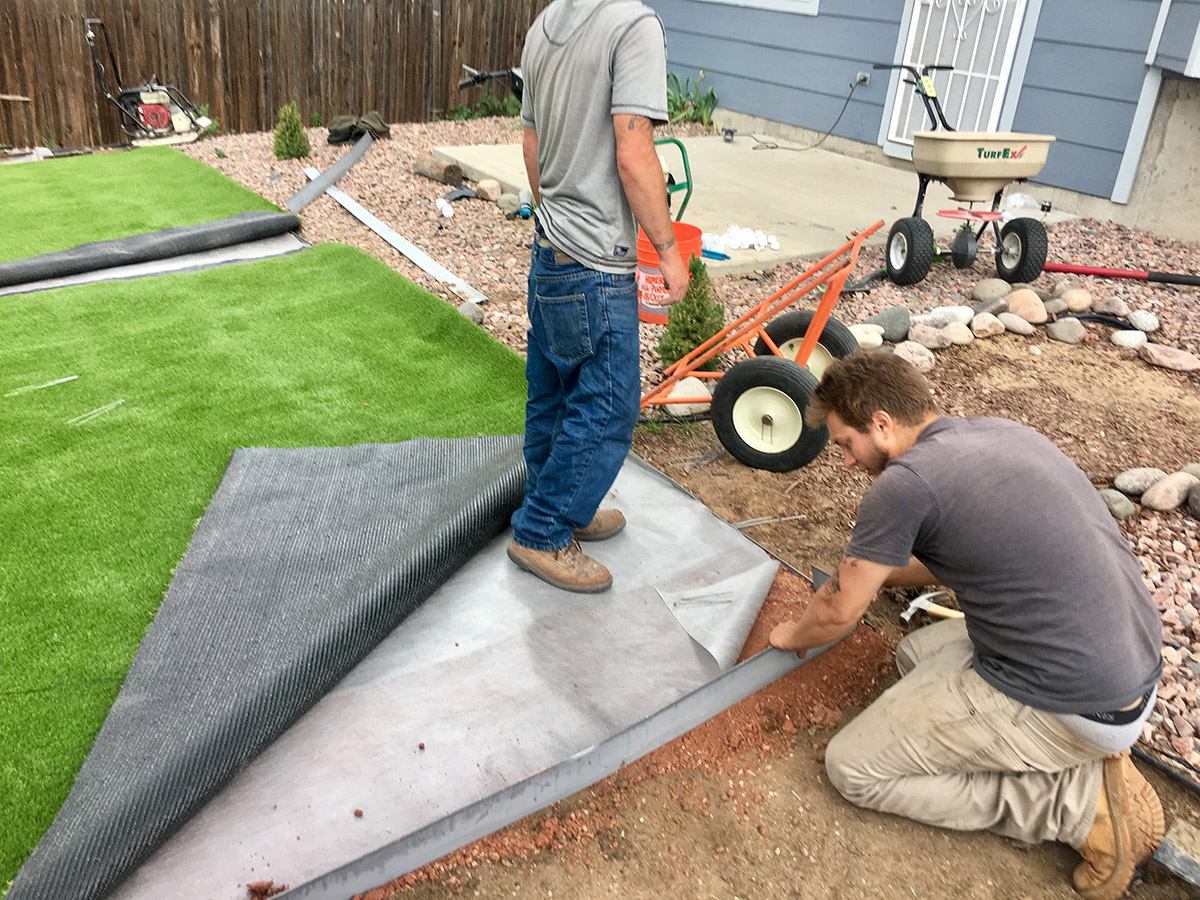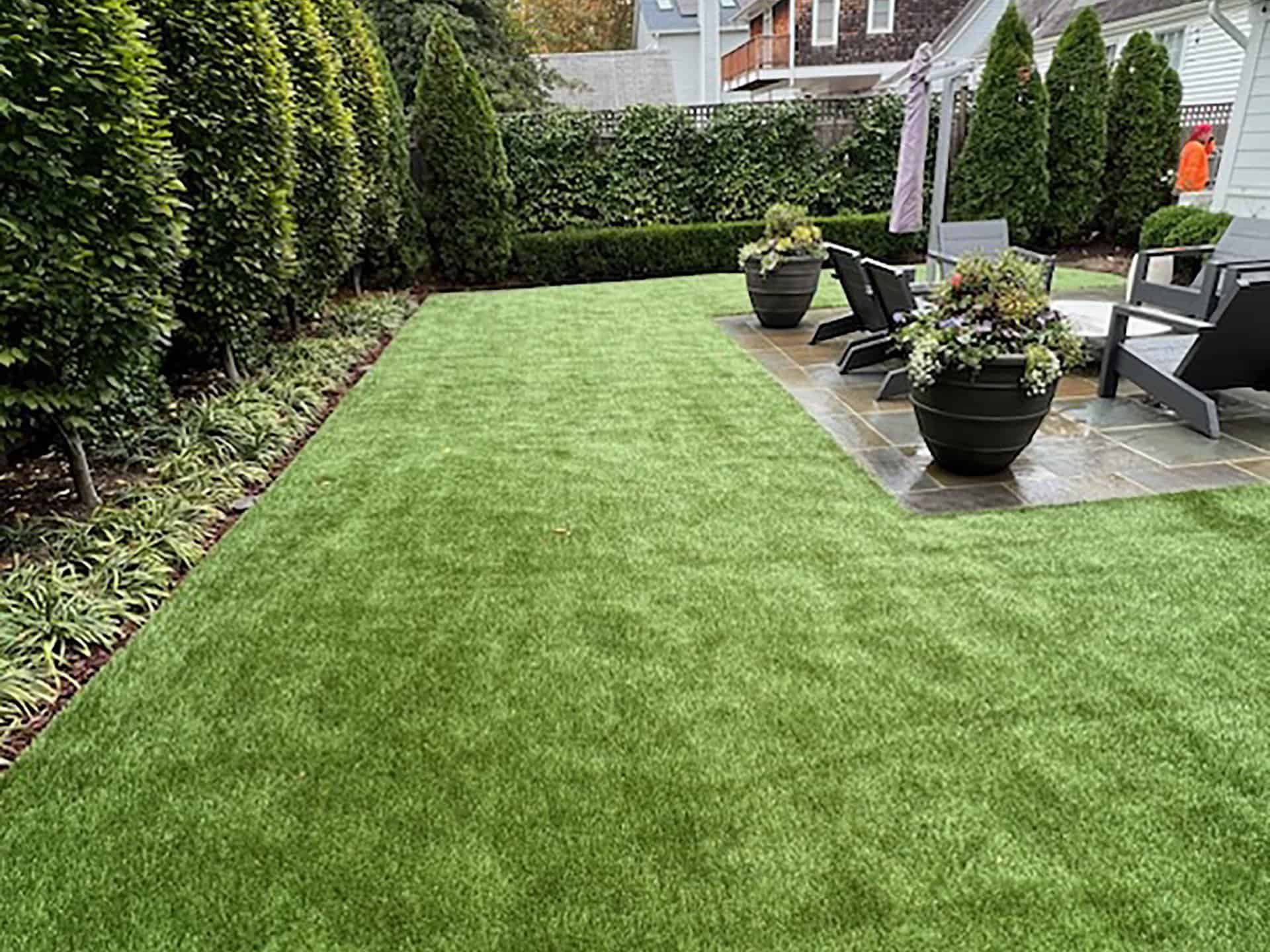Eco-Friendly Arizona Artificial Turf for a Year-Round Lush Green Lawn
Look Into the Environmental Perks of Opting for Synthetic Grass Solutions
The fostering of synthetic turf solutions presents an engaging possibility to resolve pushing ecological obstacles. By significantly decreasing water usage and decreasing the application of hazardous chemicals, these alternatives not only promote sustainable landscaping however additionally protect local ecosystems. In addition, the lower carbon footprint linked with reduced maintenance tasks adds to a more lasting method to land monitoring. Nonetheless, the ramifications of these benefits prolong past plain conservation initiatives, questioning concerning their long-term effect on environment preservation and general eco-friendly balance. Discovering these measurements reveals a complicated interaction worth considering.
Water Preservation Benefits
One of the most significant benefits of artificial grass is its capability to save water. Conventional turf lawns require substantial irrigation, specifically in areas vulnerable to dry spell or water limitations. In comparison, synthetic grass does not need watering, considerably decreasing the overall need for water sources. This function is especially useful in arid regions where water scarcity is a pushing worry.
By getting rid of the demand for routine watering, synthetic grass adds to sustainable landscape methods and aids reduce the ecological effect of too much water consumption. In addition, the conservation of water reaches the decrease of drainage, which can result in soil erosion and river pollution.
Additionally, the installment of artificial grass permits communities and house owners to designate water sources extra efficiently, concentrating on essential usages such as alcohol consumption water and farming. The shift towards synthetic lawn not only promotes liable water usage however additionally straightens with broader environmental goals targeted at protecting natural deposits.
As areas increasingly prioritize sustainability, the water conservation benefits of synthetic grass offer an engaging instance for its fostering in household and business landscaping projects.
Reduced Chemical Usage
The transition to synthetic grass dramatically lowers the dependence on chemical treatments typically utilized in natural lawn maintenance. Typical lawn administration generally entails the application of fertilizers, herbicides, and chemicals to promote development and control bugs. These chemicals can present risks to human health, local wild animals, and the atmosphere, contributing to soil and water contamination.
On the other hand, synthetic grass gets rid of the need for these hazardous substances. As soon as set up, it requires marginal upkeep, mainly containing routine cleaning and seldom infill replenishment. This decrease in chemical usage not just profits the immediate setting however likewise adds to wider environmental stability. By lessening the launch of artificial compounds right into the environment, synthetic lawn promotes much healthier soil and water supply.
Moreover, the absence of chemical drainage related to synthetic grass installations assists shield local rivers from air pollution, supporting water life and keeping biodiversity. Artificial turf companies phoenix. As neighborhoods increasingly focus on lasting techniques, opting for man-made lawn provides a feasible remedy that aligns with environmental conservation objectives. Via this change, residential property proprietors can enjoy lush eco-friendly areas without endangering eco-friendly health, paving the way for a much more sustainable future
Reduced Carbon Impact

Furthermore, the installation of synthetic grass can cause substantial water conservation. Natural yards need substantial quantities of water for watering, which not just contributes to the carbon impact connected with water extraction and treatment but also strains local water resources. In comparison, man-made lawn requires very little upkeep, needing no watering, consequently dramatically reducing water use and its linked power prices.
In addition, the long life of synthetic grass adds to its decreased carbon effect. With a life expectancy of as much as 15 years or more, the need for frequent substitutes is lessened, causing much less waste and lower power intake in production and disposing of traditional turf choices. Overall, synthetic lawn offers a lasting alternative for environmentally mindful landscaping.
Environment Conservation
Habitat preservation is a critical factor to consider in the dispute over landscaping options, especially when contrasting artificial lawn to all-natural turf. All-natural lawn lawns frequently call for substantial maintenance, consisting of the usage of herbicides, fertilizers, and chemicals, which can negatively impact neighborhood environments. These chemicals can leach right into the dirt and waterways, damaging native vegetation and fauna and interfering with local environments.
Synthetic grass gets rid of the need for damaging chemicals, therefore shielding neighboring wild animals and keeping the honesty of bordering ecosystems. The installation of artificial lawn can lead to the conversion of previous yard locations right into look at this site even more biodiverse landscapes, such as pollinator gardens or native plant areas, which can support neighborhood wild animals.
Inevitably, the change to synthetic grass not just saves water and decreases maintenance efforts but additionally cultivates a much more harmonious connection between human tasks and the all-natural setting, advertising habitat preservation while doing so.
Long-Term Sustainability
Lasting sustainability is a crucial factor in reviewing the benefits of fabricated turf over traditional grass yards. Among one of the most considerable benefits of synthetic grass is its longevity; it can last approximately 15-20 years with very little upkeep, whereas natural turf requires constant reseeding and replacement. This long life minimizes the need for consistent resources, such as check my source water, plant foods, and pesticides, which are essential for keeping a healthy yard lawn.
In addition, man-made turf adds to a reduction in carbon discharges associated with yard care devices. Traditional yards often need gas-powered lawn mowers, trimmers, and blowers, every one of which add to air contamination. Arizona artificial turf. In contrast, synthetic grass gets rid of the demand for such devices, advertising a cleaner environment
Furthermore, the manufacturing of synthetic grass significantly utilizes recycled materials, boosting its sustainability account. As producers take on environmentally friendly techniques, the ecological footprint of synthetic grass remains to diminish.

Final Thought
The adoption of fabricated grass services provides significant ecological benefits, including significant water conservation, decreased dependence on dangerous chemicals, and a lower carbon impact. Additionally, synthetic grass help in preserving all-natural environments by reducing land disruption and promoting long-lasting sustainability through the usage of durable materials. Jointly, these factors highlight the possibility of artificial grass to add favorably to environmental health and wellness and supply a viable option to typical landscaping practices in a progressively resource-conscious globe.
In comparison, synthetic grass does not require watering, significantly decreasing the general need for water sources. By decreasing the release of synthetic compounds right into the ecological community, artificial turf promotes healthier soil and water systems.
Moreover, the setup of man-made lawn can result in significant water preservation. In comparison, additional reading artificial turf needs minimal maintenance, requiring no watering, thereby considerably decreasing water usage and its associated energy costs.
